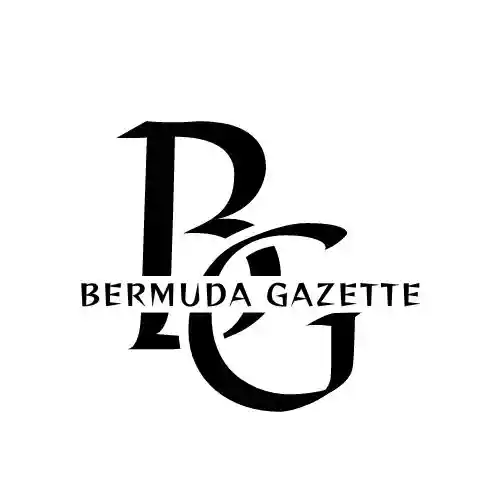The 21st-century media landscape has left traditional papers such as The Royal Gazette in Bermuda struggling to survive. The oldest paper founded in 1828, The Royal Gazette is an integral news source for residents of the Island. However, the rise of digital media, changes in reader habits, and economic downturns have added new obstacles that endanger its continued existence. This story delves into the key problems facing The Royal Gazette today and looks at how it is trying to evolve in a rapidly changing world.
Key Takeaways
- Economic downturns and the decline in print advertising revenues have significantly impacted the newspaper’s financial stability.
- Digital transformation poses both challenges and opportunities, with the need for innovative business models to sustain operations.
- Legal battles over press freedom highlight the ongoing struggle to maintain journalistic integrity in a changing landscape.
- Cultural shifts in media consumption, particularly among younger audiences, require a strategic pivot to remain relevant.
Economic Pressures in a Shrinking Market
The woes of The Royal Gazette echo a broader strain on newspapers internationally, where economic pressures make publishing print editions unviable. Over the past few years, newspapers in Africa have also experienced a sharp decline in print advertising revenues which has greatly affected their financial sustainability.
The Royal Gazette, whose parent is Bermuda Press (Holdings) Ltd., also recorded a huge loss of $466.000 this year from losing only $76.00 last year (Caribbean Today). However, Bermuda’s small market meant limited advertising income for the newspaper and it was under financial strain as a result.
Impact of the Local Economy
Bermuda has been hit by the economic downturn with many of its small businesses closing or merging, which inevitably impacts on the numbers available to advertise. During the recession, consumer spending fell off a cliff, and with it of course retail advertising–one of the Newspaper’s principal sources of revenue. The Royal Gazette, meanwhile, is still feeling the fiscal pinch and it is becoming very critical that we find ways to diversify income streams.
Digital Transformation and the Battle for Relevance
Digital transformation is the biggest challenge facing The Royal Gazette in the 21st century. As more readers migrated to the web for their news, that meant taking a basic newspaper model and moving it online. Yet, this transition has come with its hurdles.
Shift to Online Platforms
The Royal Gazette has already introduced a new model in digital subscription, paywalls, and online advertising to replace falling print revenues. These acts of survival are important, but they need to be carefully done. The newspaper needs to provide a reason for people to pay a subscription fee, which requires the paper to offer more compelling content than free sources available online.
Competition with Global Media
The change to digital means Bermuda’s news market is now open to competition globally. The Royal Gazette no longer has a captive audience — with its readers able to access news from around the world, this makes it harder for the media company to attract and hold onto people.
This increased competition made the newspaper realize that it needed to evolve its news delivery and go beyond just competing with other newspapers, but also give readers more ways to interact with their journalism while at home.
Legal and Ethical Challenges
The Royal Gazette has also had to contend with several legal challenges, covering issues like freedom of the press and whether it can cover things that friends in high places would prefer not be reported. For years, the newspaper made headlines for its reporting on subjects of public controversy and subsequent legal fights.
Threat to Press Freedom
One of the high-profile legal disputes concerned a story in which The Royal Gazette reported on an influential local lawyer and his alleged involvement in major tax evasion, leading to the newspaper being taken before court where it was banned from printing specifically named details (Caribbean Today). Even with these strictures, the paper has kept arguing for greater openness and a free press — pointing to an independent media as necessary in any democratic society.
The Legal Battle and Ethical Concerns
The Royal Gazette’s legal problems force the paper into ethical dilemmas. The newspaper must straddle the thin line of responsible journalism and ethical principles with right-to-information laws. These difficulties highlight the ongoing battle to maintain journalistic principles at a time when information is more available — and yet simultaneously restricted — than before.
Technological Disruptions and the Future of Journalism
The ever-faster speed of technological change has only made the tectonic shift in prospects all the more confusing through which a “mainstream” newspaper must navigate. Technologies have emerged that interfere with traditional models of journalism, posing challenges and also opportunities.
Social Media Has Changed Everything
The Rise of Social Media and AI: Social media platforms have by far outstripped traditional outlets like The Royal Gazette as being primary players for distributing news. The newspaper is up against them for a higher percentage of reader attention, with competition from mobile and YouTube.
Additionally, AI and automation in content creation raise concerns about potential job losses in journalism and the risk of news lacking accuracy.
Going Forward
As the world continues to develop new forms of technology, Bermuda’s media must evolve and adapt. This includes tapping social media platforms to direct people to its site, producing multimedia content, and using data analytics tools to gain insights into reader interests. Leveraging these technologies is necessary for the newspaper to maintain its relevance and competitive edge in a digital world.
Cultural and Societal Shifts in Media Consumption
The grand old Lady of Par-la-Ville has also had to adapt to a world where the way we absorb news and information is changing culturally and socially. With the changing media consumption habits of Bermudians, so too must newspapers change.
Demographic Changes in Readers
One of the biggest cultural shifts is a shift in reader demographics. This is even more the case among younger news consumers, who are far less likely to get news in print and much likelier than older Americans to consume it on digital devices. Seeking new advertising dollars means differentiating the content to appeal to an anticipated digital-first and younger reading audience: that requires rethinking how The Royal Gazette approaches its topic selection, for example.
Engaging with the Community
Despite such struggles, The Royal Gazette remains an invaluable part of the local Bermuda community. Their local focus on events, social issues, and cultural happenings also helps to create a sense of community identity. However, doing so requires constant reinforcement of the newspaper’s relationship with those readers and listening to their evolving needs.
FAQs About Bermuda Royal Gazette Newspaper
1. What economic challenges does The Royal Gazette face in the 21st century? The newspaper faces significant financial pressures due to declining print advertising revenues, compounded by Bermuda’s shrinking market and economic downturn.
2. How is The Royal Gazette adapting to the digital age? The Royal Gazette is transitioning to digital platforms, implementing paywalls, and experimenting with online subscriptions to offset declining print revenues.
3. What legal challenges has The Royal Gazette encountered recently? The newspaper has faced legal battles over press freedom, particularly related to its reporting on sensitive legal cases, leading to court-imposed restrictions on its content.
4. How are technological changes affecting The Royal Gazette? Technological disruptions, such as the rise of social media and AI, have challenged The Royal Gazette to adapt its content strategy and engage readers in new ways.
5. How does The Royal Gazette stay relevant in the face of cultural shifts in media consumption? The newspaper is focusing on digital-first content strategies and engaging with younger audiences who prefer consuming news online.
Final Words
The Royal Gazette is now at such a crossroads, as it steers its way through the many trials and tribulations of 21st-century publishing. But it is still true that the newspaper must keep up with changes in Bermuda, and shaped by economic pressures, a digital transformation—at least one lawsuit—newspapers have not only stationed cultural evolution must continue if they are to fulfill its role as Bermuda’s number one news source.
The Royal Gazette looks forward to continued principles-based decision-making as we navigate through this assessment, focus on high-quality reporting, and fulfill our important role in providing reliable, engaging journalism for the people of Bermuda.
What do you guys think the future is for more traditional newspapers such as The Royal Gazette? Let us know your thoughts and check out our additional pieces on the media rebuilding its landscape, from journalism to podcasts.

